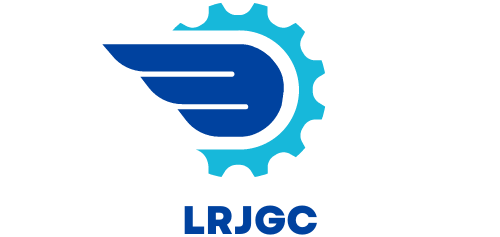Project management in healthcare isn’t just a buzzword; it’s a critical component for ensuring efficient, high-quality patient care. As healthcare systems grow more complex, the need for streamlined processes, effective communication, and resource optimization becomes paramount. Project management methodologies offer the tools and frameworks necessary to tackle these challenges head-on.
By integrating project management principles, healthcare organizations can better manage everything from patient flow to large-scale initiatives like electronic health record (EHR) implementations. These strategies help minimize errors, reduce costs, and improve overall patient outcomes. As the industry continues to evolve, mastering project management in healthcare will be essential for staying ahead of the curve.
Project Management In Healthcare
 Healthcare project management is critical for driving improvements in patient care quality. Effective methodologies streamline workflows, making operations smoother and reducing errors. Efficient management frameworks facilitate successful large-scale initiatives like EHR implementations. These initiatives boost patient data accuracy and accessibility.
Healthcare project management is critical for driving improvements in patient care quality. Effective methodologies streamline workflows, making operations smoother and reducing errors. Efficient management frameworks facilitate successful large-scale initiatives like EHR implementations. These initiatives boost patient data accuracy and accessibility.
Optimized resource allocation ensures cost-effective operations. Project management practices enhance communication among healthcare providers, fostering collaborative environments. Okay
Key Principles Of Project Management
Effective project management in healthcare hinges on key principles that drive successful outcomes. These principles ensure projects are completed on time, within budget, and to the desired quality standards.
Scope Management
Scope management defines the boundaries and deliverables of a project. In healthcare, precise scope management ensures patient care initiatives meet outlined objectives without unnecessary variations. A well-defined scope statement includes all project work elements, minimizing ambiguity. For example, implementing an EHR system requires detailed scope documentation covering features, integration requirements, and user training. Managing scope changes through a formal change control process ensures alignment with original project goals.
Time Management
Time management involves planning and controlling schedules to meet deadlines. Healthcare projects, like medical equipment upgrades, rely on meticulous schedule management to avoid interruptions. Tools like Gantt charts and Critical Path Method (CPM) help visualize and track project timelines. Identifying and prioritizing critical tasks ensures timely completion. Regular progress evaluation enable project teams to adjust schedules and allocate resources efficiently, keeping the project on track.
Cost Management
 Cost management includes budgeting, cost estimating, and financial control. Healthcare organizations must manage project costs to stay within financial constraints. Accurate cost estimation is crucial for initiatives like hospital expansions.
Cost management includes budgeting, cost estimating, and financial control. Healthcare organizations must manage project costs to stay within financial constraints. Accurate cost estimation is crucial for initiatives like hospital expansions.
Cost management plans outline how costs will be controlled and monitored. For instance, tracking labor, materials, and vendor expenses helps ensure adherence to the budget. Monitoring and reporting financial performance enable early detection of cost overruns, facilitating prompt corrective actions.
Common Challenges In Healthcare Projects
Regulatory Compliance
Meeting regulatory compliance requirements is a significant challenge in healthcare projects. Healthcare organizations must adhere to stringent laws and standards, such as HIPAA for patient data protection and FDA regulations for medical devices. Failure to comply can result in severe penalties and damage reputation. Keeping up with frequent regulatory changes, training staff, and ensuring all project components meet these standards requires meticulous planning and supervision.
Resource Allocation
Efficient resource allocation is critical yet challenging in healthcare projects. Resources, including medical personnel, equipment, and finances, are often limited. Properly distributing these resources to meet project demands while maintaining patient care quality is complex. For example, allocating nurses for an EHR implementation project without impacting patient care necessitates careful planning. Misallocation can lead to delays, increased costs, and compromised patient outcomes.
Benefits Of Implementing Project Management In Healthcare
Improved Patient Care
Project management enhances patient care by enabling consistent monitoring, timely interventions, and improved coordination among healthcare providers. When managing healthcare projects, tools like project charters and communication plans ensure everyone understands the project’s goals and their roles.
Increased Efficiency
 Increased efficiency is another significant benefit of implementing project management in healthcare. By optimizing workflows, better utilizing resources, and employing techniques like Lean Six Sigma, organizations can eliminate waste and enhance productivity.
Increased efficiency is another significant benefit of implementing project management in healthcare. By optimizing workflows, better utilizing resources, and employing techniques like Lean Six Sigma, organizations can eliminate waste and enhance productivity.
The use of Gantt charts and project management software aids in tracking progress and deadlines, ensuring timely completion of tasks.
Navigating the Complexities of Modern Healthcare Systems
Project management in healthcare is indispensable for navigating the complexities of modern healthcare systems. By adopting robust project management methodologies, healthcare organizations can improve patient care, enhance operational efficiency, and ensure compliance with stringent regulations. Effective project management leads to better resource allocation, reduced errors, and cost savings, ultimately resulting in superior patient outcomes.

